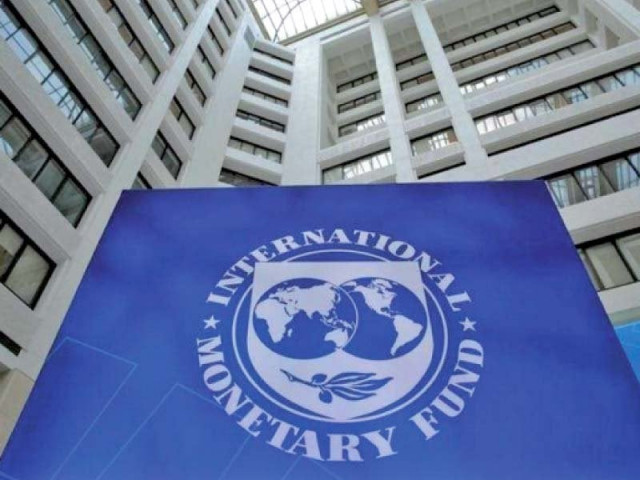IMF urges Pakistan to freeze govt salaries
IMF asks Pakistan to adhere to fiscal consolidation by showing nominal primary deficit

IMF urges Pakistan to freeze govt salaries
The IMF is insisting that Pakistan should continue to follow the fiscal consolidation path due to a high and unsustainable public debt that is set to hit 90% of the total value of national economy.
The outbreak of the deadly novel coronavirus has exposed vulnerabilities of Pakistan’s economy that had already been struggling owing to weak economic foundations that caused fiscal and current account deficit crisis after every four to five years.
Owing to the prevailing tight fiscal situation, growing public debt and Pakistan’s decision to seek debt relief from G20 countries, the IMF was asking Islamabad to freeze salaries of government employees, said sources in the Ministry of Finance.
However, the government is resisting the demand due to high inflation that has eroded people’s real income.
Nonetheless, it is inclined to abolish over 67,000 posts that have remained vacant for over one year and is also ready to further squeeze current expenditures including a ban on purchase of vehicles.
The proposal of ending the car monetisation allowance for grade-20 to 22 officers also came under discussion in the Ministry of Finance but it was unlikely to be implemented at the current stage.
The IMF’s key demand, which was also the reason for seeking to freeze the salaries, was that the government should announce a primary budget deficit target - total deficit excluding interest payments - of only Rs184 billion or 0.4% of gross domestic product (GDP).
Pakistan has its own reasons for resisting the IMF’s demands as it does not see a significant jump in revenue collection in the next fiscal year due to the prevailing economic conditions. The government is also inclined to give a raise in salaries due to high inflation that has eroded the real income of people, said the sources.
The government will unveil the budget on June 12 and struggles to strike a balance between continuing with the fiscal consolidation and providing an impetus to economic growth. The finance ministry is keen to restore the IMF programme and is holding video conferences with the IMF staff in Washington.
Against the IMF’s demand for the 0.4% primary budget deficit, the government has proposed that the target should be 1.9% of GDP or Rs875 billion. The expenditure on interest payments, estimated at Rs3 trillion or 6.5% of GDP in the next fiscal year, is in addition to that.
This means the budget deficit target, as suggested by the IMF, will be around 7% while the federal government sees the realistic deficit target at 8.4% of GDP or Rs3.9 trillion.
For this fiscal year, the estimated primary deficit is 2.9% of GDP and the IMF wants a fiscal adjustment of 2.5% within one year.
Another issue between Pakistan and the IMF was the FBR’s tax target, which the IMF has proposed to be Rs5.1 trillion. The FBR thinks it cannot collect more than Rs4.7 trillion. Another FBR target that is currently under discussion is Rs4.990 trillion.
For this fiscal year, the IMF had set a Rs5.5-trillion tax collection target but actual collection is likely to remain around Rs3.9 trillion.
The politically sensitive issue for the government is the increase in salaries of civilian and military employees.
In the last budget, the Pakistan Tehreek-e-Insaf (PTI) government had announced a 10% increase in salaries of grade-1 to 16 officers and a 5% raise was given to the officers serving in grade 17 to 20.
No raise had been given to the government and military officers serving in the two highest basic pay scales of grade 21 and 22. The Joint Staff Headquarters has forwarded a request to the Ministry of Finance through the Ministry of Defence for an increase in salaries.
The secretaries’ committee has recommended a 100% increase in basic salaries of all employees working in the Pak Secretariat - the seat of federal bureaucracy - aimed at keeping the talent and offsetting the impact of high inflation.
The government is considering 10-15% pay raise and around 10% increase in pensions. Total estimated cost of running the civil government in the next fiscal year is Rs495 billion and around half comprises the salary bill. Another Rs475 billion may be allocated for paying pensions in fiscal year 2020-21.
Published in The Express Tribune, June 5th, 2020.
Like Business on Facebook, follow @TribuneBiz on Twitter to stay informed and join in the conversation.



















COMMENTS
Comments are moderated and generally will be posted if they are on-topic and not abusive.
For more information, please see our Comments FAQ